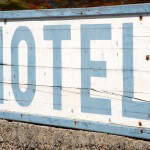Digital marketing is becoming more and more competitive in the hospitality industry thanks to online travel agencies, meta search engines and the increasingly sophisticated web presence of various hotels.
In order to remain ahead of the pack, hotels must be prepared to wisely channel their time and resources into devising effective strategies in order to obtain positive results.
Here are some tips for your hotel marketing strategy to help you stay ahead of competitors in 2016.
Invest in your most important real estate—your website
If your website does not have responsive design, does not support dynamic content personalization, does not offer dynamic rate marketing or has not been updated in five years, you need to work very hard to stay ahead of your competitors.
While the above aren’t quite industry standard at the moment, they will be soon, so it is crucial to move fast to ensure your hotel business does not get left behind.
Use a newer tool—dynamic content personalization
Simply adding fresh content frequently to your website isn’t enough to increase your profits these days.
The most competitive hotels create dynamic website experiences through content personalization designed to increase conversions.
This can be done by accessing and analyzing previous viewing history, reviews, past purchases, demographic information or psychographic segmentation in order to generate a customized experience.
Now is the time for real time
Dynamic rate marketing is now fairly common in the world of hotel booking.
Real time hotel pricing and room availability is displayed in various parts of the marketing channel such as display advertising, meta search, retargeting, Google AdWords, email marketing, and keeping your Google Business Listings up-to-date.
Thankfully, this is not a difficult process to set up, and dynamic rate marketing can dramatically increase conversions and boost ROI.
If you need to pick one thing to work on in 2016, this is it.
Follow your customers: increase your digital budget
More than 50% of hotel bookings take place online, so increasing your budgets to chase customers via online channels can pay great dividends.
Use sales to justify your budget and senior management will see immediately why it makes sense.
Make the customer journey one with multiple destinations
Consumers can visit a website more than 10 times before making a purchase or booking.
It is therefore important to ensure that your website users are engaged enough to make multiple visits to your site, a process which will hopefully culminate in a successful booking.
For high conversion rates, it is crucial to analyze all areas of your sales funnel, create attribution pathways and focus your efforts on the highest converting pathways.
Reviewing all parts of the campaign as a whole rather than each one in isolation will help you to make a more informed decision.
Call the OTAs’ bluff
Despite the strengths of OTAs (online travel agencies) on the web today, a good online strategy can quite easily help hotels drive traffic away from the OTAs—and onto their own sites.
A hotel chain can be nimbler and react faster to changes than a large OTA. Despite the fact that OTAs spend massive amounts of money on digital marketing, hotels can afford to be more targeted and generally have a lower CPC.
In addition, hotels have the ability to spend more money on the direct property site.
Coupled with a great marketing automation strategy and an enticing rewards program for returning guests, a hotel’s digital marketing strategy has the power to wrestle traffic from OTAs and raise revenues.
The digital space is constantly evolving, and an increasing dependence on online sources of revenue is making hotels sharpen their claws.
In order to stay ahead of the competition, it is crucial to pay attention to trends in cyberspace and be an early adopter.
Author Bio: Brie Moreau is a Digital Marketing Analyst for Hotel Marketing Works.





